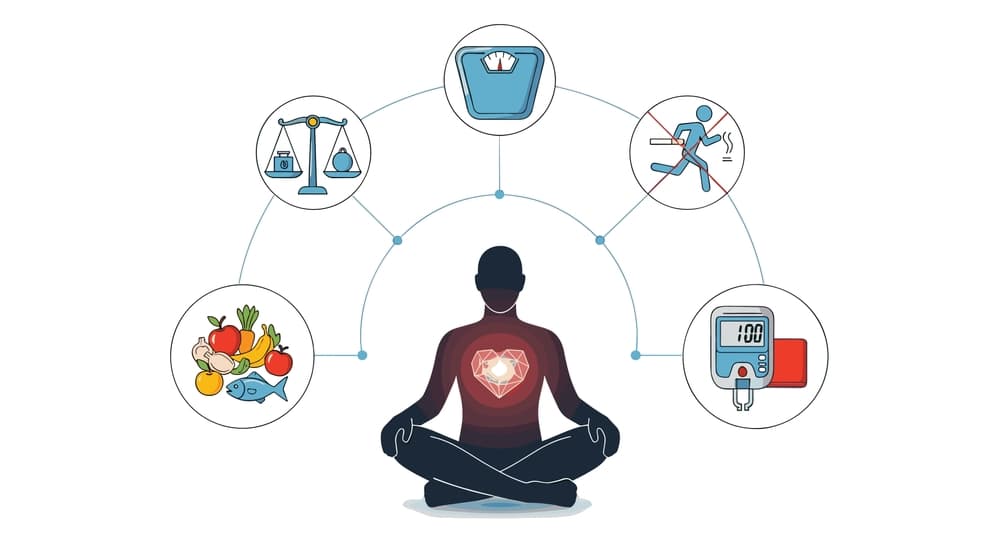How to develop emotional resilience and mental strength
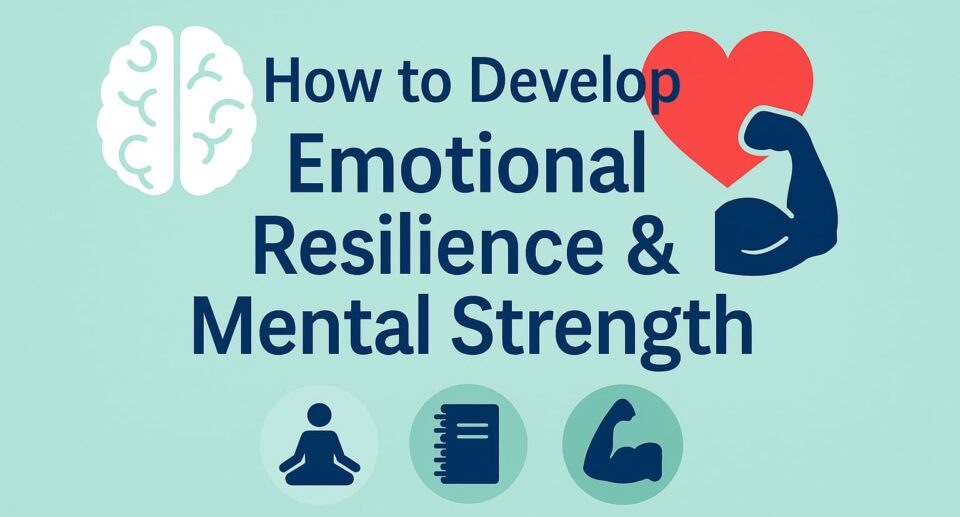

Strength from Within
Everybody faces obstacles in life, whether they be unexpected loss, relationship problems, financial difficulties, or stress at work. While some people feel overwhelmed and stuck, others bounce back quickly and continue on their way. Regaining your footing is not solely dependent on the situation. The degree of mental and emotional fortitude you possess is what really makes a difference.
Mental strength gives you the will to keep going even when things seem uncertain, while emotional resilience helps you adjust when life does not go as planned. These characteristics are not set in stone. Like a muscle that develops with regular training, they can be acquired, used, and strengthened over time.
This post will discuss doable strategies for building inner strength and resilience. The objective is to get ready to face challenges head-on with clarity and confidence, not to avoid them.
What is Emotional Resilience


The capacity to bounce back from stress, disappointment, or sudden change without losing your equilibrium is known as emotional resilience. It doesn’t imply denying feelings or acting as though issues don’t exist. Resilience, on the other hand, enables you to experience those feelings, process them, and still proceed with perspective.
Psychologists often describe resilience as the process of adapting well in the face of adversity. People who are resilient are not free from hardship, but they are better prepared to adjust and regain stability. They are able to manage pressure without being controlled by it.
Some of the common traits of emotionally resilient individuals include optimism, flexibility, awareness of their own feelings, and a willingness to seek support from others. These qualities do not appear overnight. They are built slowly through habits, reflection, and practice.
Understanding resilience is the first step toward building it. Once you know what it is and why it matters, you can begin working on strategies to strengthen it in your own life.
The Science Behind Mental Strength
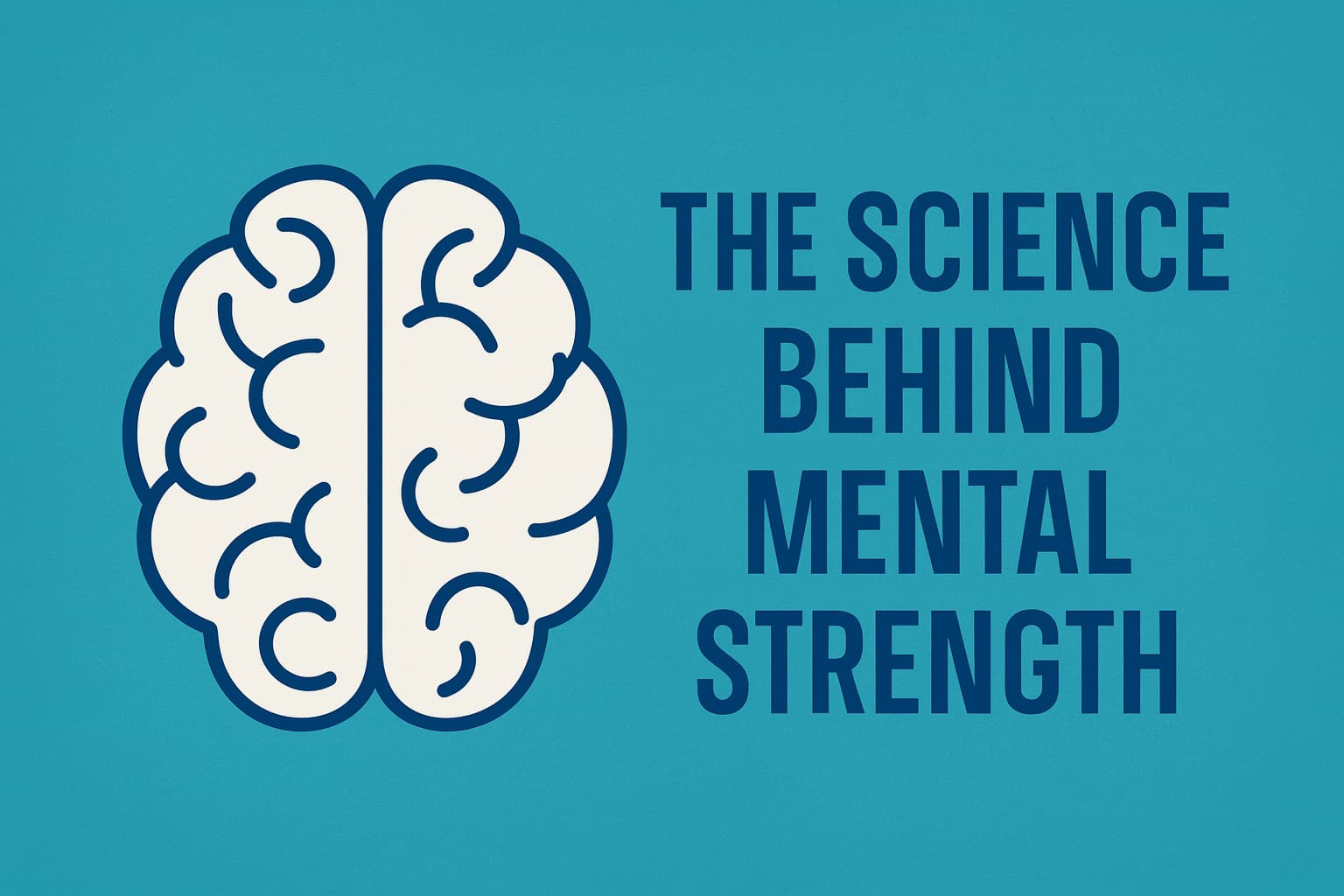

Mental strength is often seen as determination or willpower, but science shows it is more than that. It involves how your brain processes stress, how you interpret challenges, and how your daily habits shape your ability to cope.
From a neurological point of view, the prefrontal cortex the part of the brain responsible for focus and decision-making plays a central role in mental toughness. When trained through consistent practice, this part of the brain helps you manage impulses, regulate emotions, and stay calm under pressure.
Research in psychology also highlights the importance of mindset. People who view challenges as opportunities for growth respond differently compared to those who see them only as threats. This shift in perspective changes how stress hormones are released in the body, which in turn affects both emotional balance and performance.
Social support and lifestyle choices add another layer. Regular exercise, healthy eating, and strong relationships all contribute to a stable mental foundation. Over time, these factors create a reserve of strength that you can draw on when life becomes difficult.
In short, mental strength is not a fixed trait. It is built through a combination of biology, mindset, and environment. Anyone can improve their ability to manage stress and bounce back from setbacks with awareness and intentional practice.
Practical Steps to Build Emotional Resilience
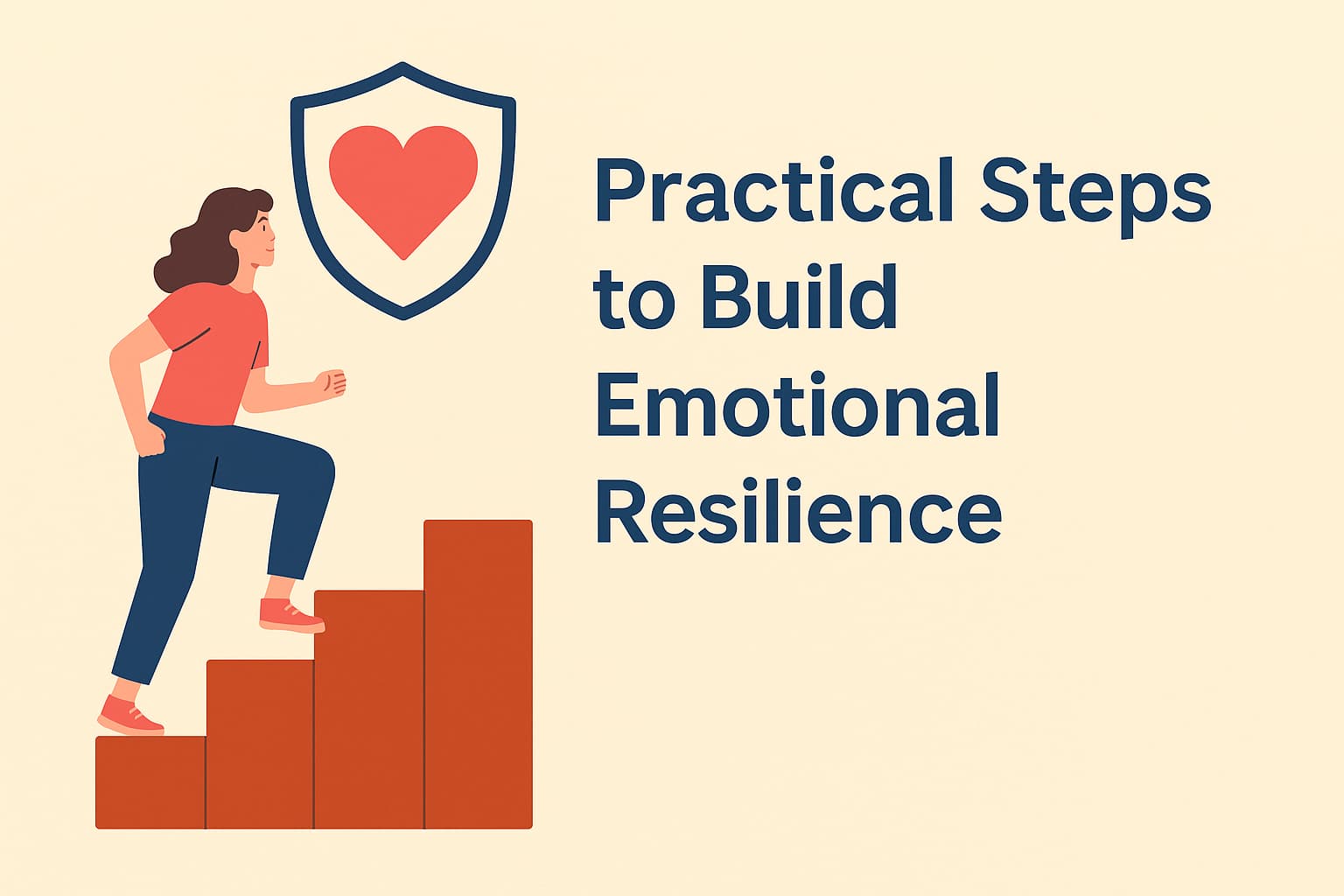

Resilience is developed gradually through choices and practices that shape the way you respond to stress. Small, consistent actions can create lasting changes. Here are some practical ways to strengthen it:
1. Reframe negative thoughts
The way you interpret events has a direct impact on your resilience. Instead of focusing on what went wrong, ask yourself what can be learned from the situation. This shift helps you see possibilities rather than just problems.
2. Practice mindfulness and reflection
Taking time to slow down, breathe deeply, or write in a journal can help you process emotions more effectively. Mindfulness practices keep you grounded in the present moment, which reduces the tendency to become overwhelmed. Learn more in our guide on How to Let Go of Past Relationship Trauma to see how reflection can aid resilience.
3. Maintain physical health
Good sleep, regular movement, and balanced nutrition support your emotional well-being. A tired or depleted body makes it harder to cope with challenges. Caring for your health creates the energy needed for resilience.
4. Strengthen connections
Relationships are one of the strongest protective factors in times of stress. Talking to supportive friends or family can reduce feelings of isolation and give you new perspectives on your problems.
5. Set realistic goals
Breaking challenges into smaller, achievable steps prevents discouragement. Each small success builds confidence and reinforces your belief that you can handle difficulties.
Resilience does not require dramatic changes. It grows from ordinary habits that make you stronger day by day.
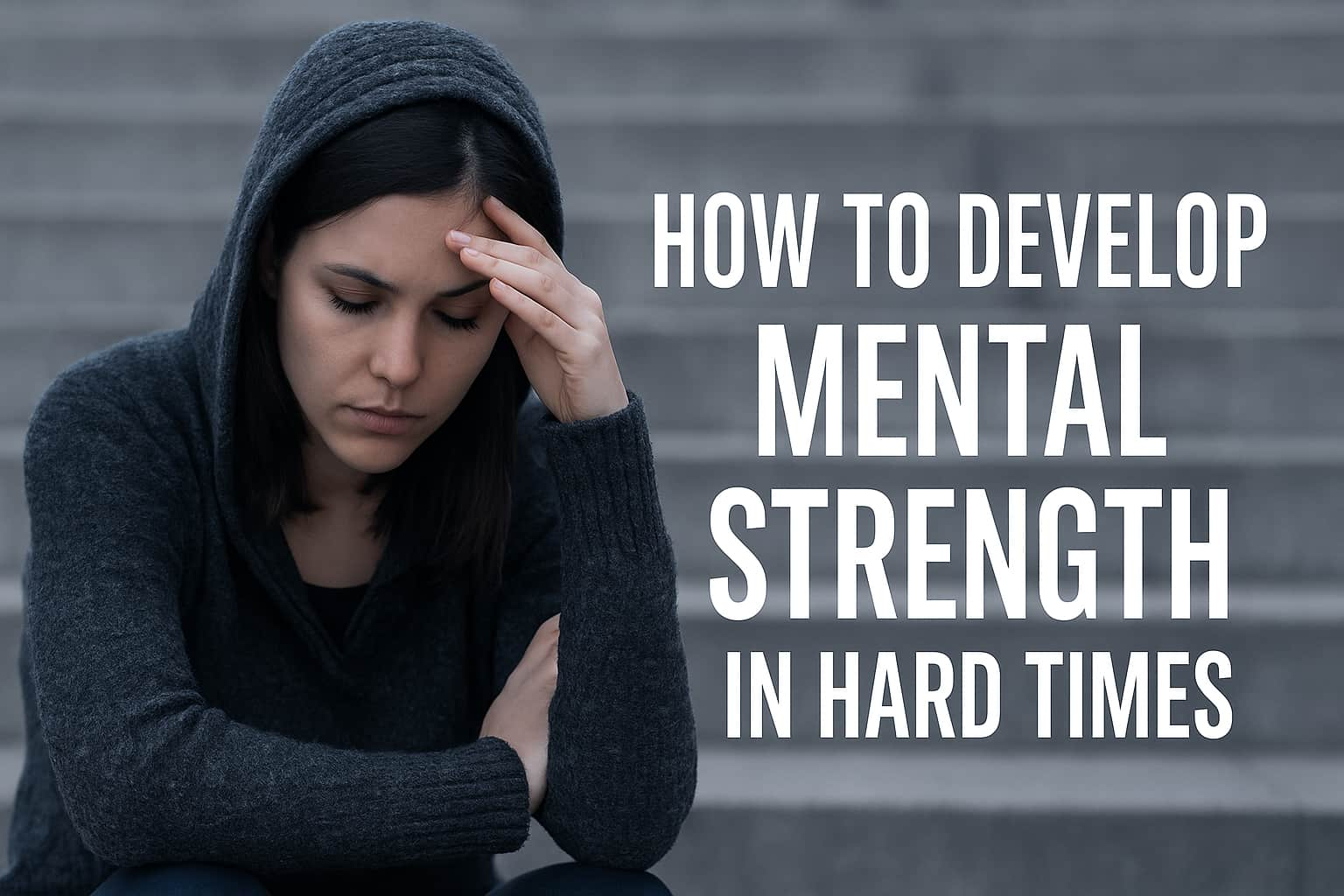
Challenges often reveal how strong or fragile our inner foundation really is. While it is easier to stay positive when life is comfortable, true mental strength shows itself during uncertainty, stress, or loss. Building this strength during hard times requires deliberate choices.
Accept reality instead of resisting it
Difficulties often feel heavier when we spend energy denying or avoiding them. Acknowledging what is happening allows you to focus on solutions rather than the frustration of wishing things were different.
Hold on to your sense of purpose
Having a clear “why” gives direction even when circumstances are unstable. Whether your motivation is family, personal growth, or long-term goals, purpose acts as a guide when everything else feels uncertain.
Break problems into smaller steps
Large challenges can feel overwhelming. By dividing them into smaller actions, you create momentum. Each step forward reinforces your ability to adapt and continue.
Control what is within reach
You cannot control everything, but you can control how you respond. Focusing on actions within your influence reduces feelings of helplessness.
View setbacks as part of growth
Hardship often teaches lessons that success cannot. Looking at difficulties as opportunities to learn helps transform painful experiences into stepping stones for resilience.
Mental strength is not about never struggling. It is about choosing to continue, even when the path feels heavy.
Lifestyle Choices That Support Inner Strength


Resilience is not only built in moments of crisis it is also shaped by the habits you practice every day. A lifestyle that nurtures both body and mind creates a foundation that makes it easier to handle stress when it comes.
Prioritize sleep
Adequate rest restores emotional balance and improves focus. Poor sleep, on the other hand, makes challenges feel heavier and reduces your ability to think clearly.
Eat to support your brain
A balanced diet rich in whole foods, healthy fats, and essential nutrients contributes to stable energy and mood. Foods like fish, leafy greens, nuts, and seeds have been linked to improved mental health.
Stay physically active
Exercise does more than strengthen the body. It lowers stress hormones and boosts chemicals in the brain that improve mood and clarity. Even a short daily walk can make a difference. For a simple home routine, check out our article on Upper Body Workout for Men at Home.
Limit negative digital exposure
Spending hours scrolling through stressful news or social media can drain mental energy. Choosing what you consume online protects your emotional state.
Cultivate calm through mindfulness or spirituality
Meditation, prayer, or simple moments of silence help steady the mind. These practices create space to process emotions instead of being overwhelmed by them.
Invest in relationships
Strong, supportive connections act as anchors during stressful times. Healthy relationships provide encouragement, perspective, and a reminder that you are not alone.
Daily choices may seem small, but together they build a reserve of strength that you can rely on when life becomes difficult.
Common Mistakes to Avoid
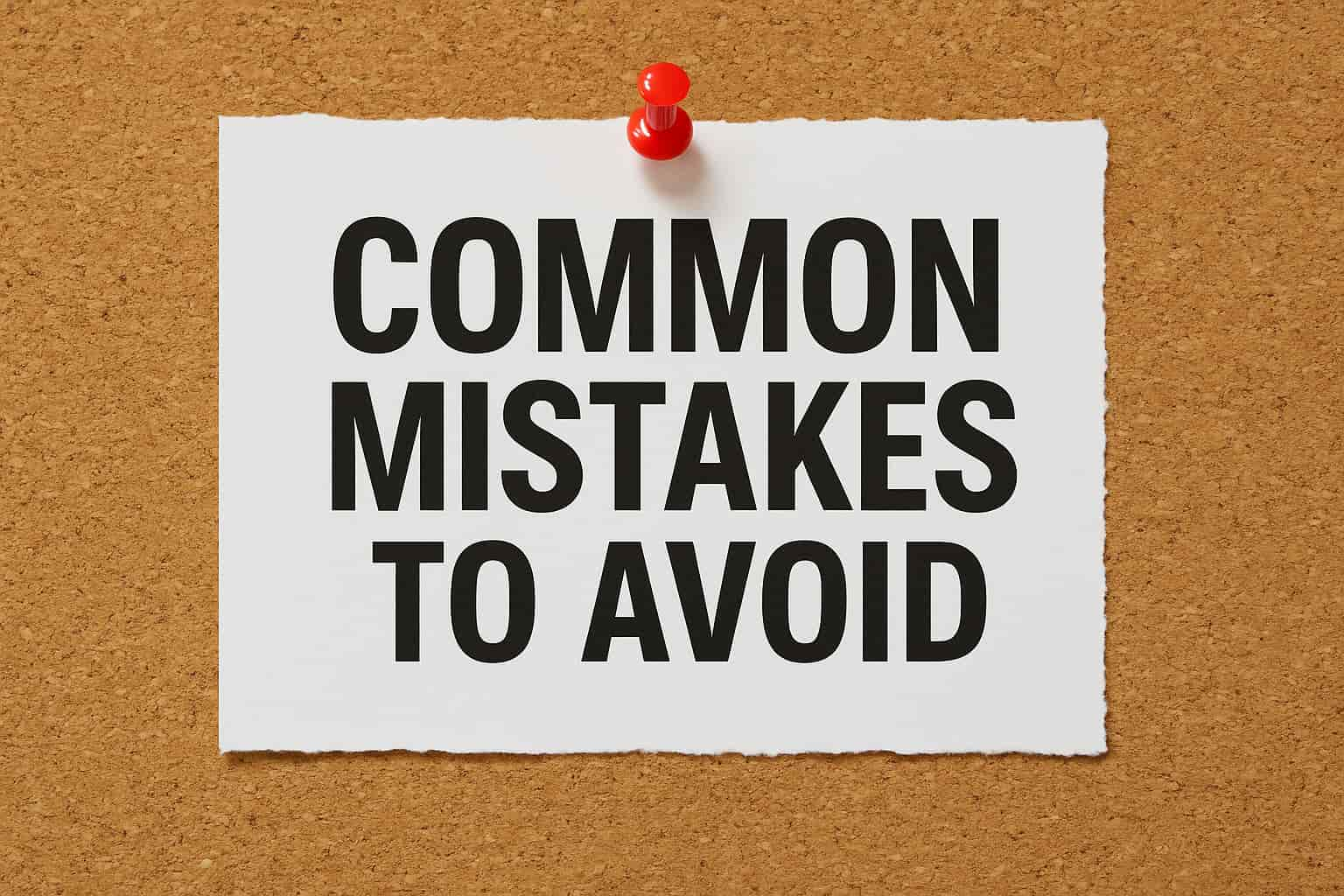

While many people want to build resilience and mental strength, they often fall into habits that weaken their progress. Being aware of these mistakes helps you avoid setbacks and stay consistent.
Suppressing emotions
Trying to ignore or bury feelings may seem like strength, but it usually makes stress last longer. Resilience grows when you acknowledge emotions and work through them in healthy ways.
Carrying everything alone
Some people believe that asking for help is a sign of weakness. In reality, seeking support is a sign of self-awareness and a valuable step in managing challenges.
Chasing perfection
Perfectionism creates constant pressure and disappointment. Mental strength comes from focusing on improvement, not from expecting flawless results every time.
Neglecting self-care
Skipping rest, ignoring nutrition, or avoiding exercise reduces your ability to recover from stress. Without caring for your body, your mind will struggle to stay strong.
Avoiding discomfort
Growth often requires stepping outside of your comfort zone. When you avoid challenges, you miss opportunities to strengthen resilience.
By steering clear of these patterns, you allow resilience to develop more naturally and sustainably.
FAQs on Emotional Resilience and Mental Strength
1. Can resilience really be developed, or is it something people are born with?
Resilience is not fixed at birth. While some may have natural tendencies that make it easier, research shows that anyone can strengthen resilience through practice and lifestyle changes.
2. How long does it take to build mental strength?
There is no single timeline. For some, noticeable progress may happen in weeks; for others, it may take months. The key is consistency small, repeated actions eventually shape lasting habits.
3. Do I need professional help to become more resilient?
Not always. Many people improve resilience on their own through healthy routines, reflection, and supportive relationships. However, therapy or counseling can be very helpful if challenges feel overwhelming.
4. What is the difference between being resilient and being “tough”?
Resilience means adapting and recovering. Toughness is often about hiding emotions. True resilience allows you to experience emotions while still finding ways to move forward.
5. What daily practices can improve resilience?
Simple habits like keeping a gratitude journal, exercising regularly, practicing mindfulness, and setting small goals can steadily strengthen both resilience and mental strength.
Building a Stronger How to develop emotional resilience and mental strength
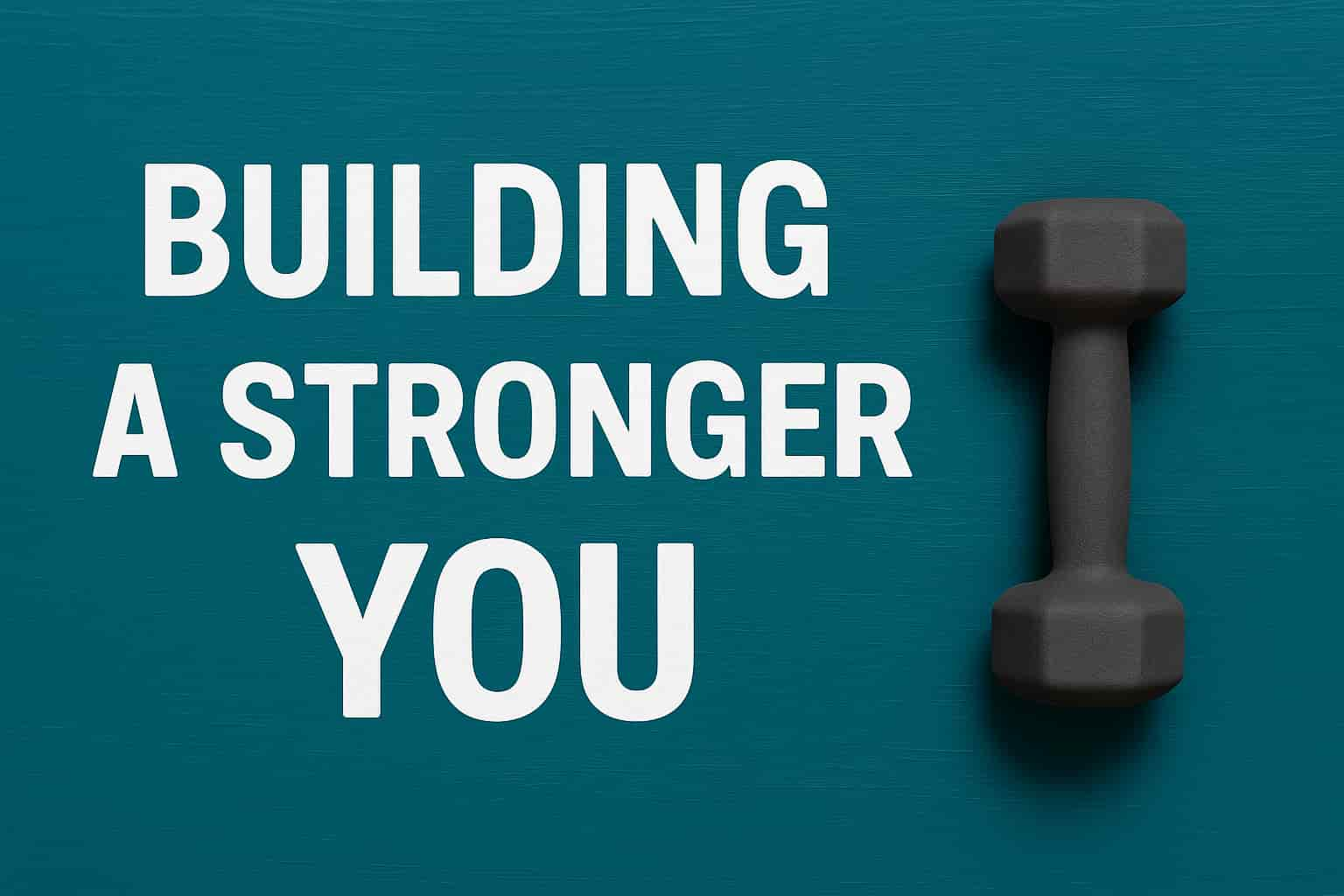

Emotional resilience and mental strength are not qualities that appear overnight. They are built slowly, through daily decisions, honest reflection, and a willingness to keep going even when life feels heavy. Challenges will always be part of the human experience, but the way you respond to them can change the outcome.
Developing resilience does not mean you will never struggle again. It means you will recover faster, adapt better, and carry yourself with more clarity and calm. Mental strength gives you the confidence to face uncertainty without losing focus, while resilience ensures you rise again after setbacks.
Start with small actions: practice gratitude, take care of your health, reach out to supportive people, and remind yourself of your purpose. Over time, these practices will create an inner foundation strong enough to carry you through life’s storms.
Building a stronger you is not about perfection it is about progress. Each step, no matter how small, brings you closer to the balanced and resilient person you want to become.

